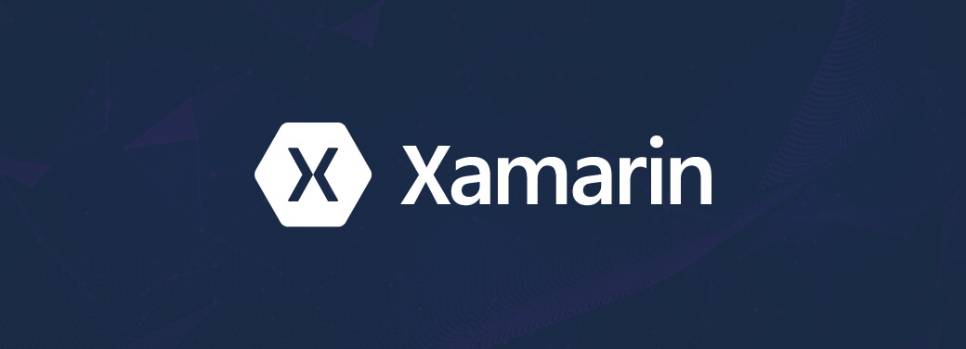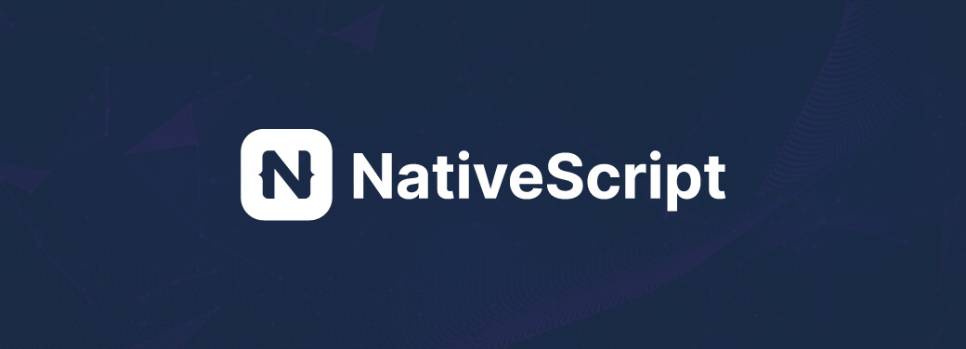Introduction:
Mobile phones have become a big part of human life. When you say mobile phone, don't you think of mobile apps? Yes, they are the thriving forces behind every mobile phone. Even when so many mobile apps are available, still, the competition in the market is to build the best mobile apps. Developers are searching for the best mobile app development frameworks to explore in the upcoming years. Businesses are very focused on creating their best to grab their users all over the world.
Ever wondered how these mobile apps are created? No need to think much, there are various mobile app development frameworks available in the tech world that you can consider learning mobile development apps. With the help of these, you can build your mobile apps easily and effectively.
During the period of development, the process of mobile applications is streamlined and experiences a remarkable change over time. This evolution not only increases the efficiency of app development but also improves the user experience as the development methodology has shifted from native app development to cross-platform app development frameworks.
The digital landscape is being revolutionized by the advancements provided by mobile app development frameworks, and the technological advancement relies on technology and the demand for innovative and user-friendly mobile operations is at its peak. User possibilities are high to reach the request to provide highly functional and innovative applications to the users to meet the current demands of the market.
What is a Mobile App Framework?
Simply put, a mobile app development framework is a software framework built to support the development of mobile applications. It is a software library that offers the basic structure needed to create mobile applications for a specific environment.
In other words, these frameworks act as a layout to support mobile application development. Mobile app development frameworks have many advantages such as cost-effectiveness, efficiency, user-centricity, and many more. Additionally, mobile application frameworks can be divided into three,
- Native apps
- Web apps
- Hybrid apps
Let's jump straight to the point and discuss the top mobile app development frameworks you should explore in 2026 for the successful and efficient development of mobile apps.
The Top Ten Mobile App Development Frameworks
Now, let's take a closer look at some of the popular mobile app development frameworks that you should explore in 2026.
1. Reactive Native
React Native is one of the JavaScript-based mobile app development frameworks, a cross-platform framework for creating apps created and supported by Facebook. It rapidly gained popularity among programmers. React Native makes it easy to build mobile apps for iOS and Android. The React Native framework is based on React and JavaScript and aims to develop native applications in hybrid applications running on a WebView. Moreover, it is a cross-platform development framework that uses a single code base for both Android and iOS applications. Some of the key benefits of React Native are mentioned below.

Code reuse: develop once, deploy anywhere.
Fast development: The hot reloading feature speeds up the development process.
Rich Ecosystem: A large collection of libraries and modules.
Keyword Integration: For businesses offering mobile development services, including React Native in their toolkit increases efficiency and enables them to cater to a wide audience with diverse devices.
2. Flutter
Flutter, developed by Google, is a UI toolkit for building native applications for mobile apps, desktops, and web platforms. Flutter is a cross-platform mobile app development framework that runs on a single codebase for developing Android and iOS applications. Its innovative approach to developing apps that mimic native functionality makes it a groundbreaking SDK for cross-platform app development. It is an unmatched and reliable mobile phone UI framework for quickly creating attractive apps with comprehensive growth.

Single Codebase: Build for multiple platforms from one codebase.
Rich Set of Widgets: An extensive library for building complex UIs.
High performance: Dart language and collection to native code contribute to optimal implementation.
Its amazing widget-based architecture delivers a customizable and expressive UI. Mobile application development assistance that adopts Flutter can present clients with versatile and visually attractive applications that operate seamlessly across different platforms.
3. Ionic
Ionic is a framework specially developed for building cross-platform, hybrid, and Progressive Web Apps (PWAs) for mobile devices. Ionic is a user-friendly framework that combines Angular and Apache Cordova (PhoneGap) to allow developers to create Android and iOS applications that work together seamlessly. Additionally, Ionic has its command-line interface and other built-in features like Ionic native and Cordova-based app packages.

Web Technologies: Leverage existing web development skills.
Pre-built UI components: Accelerate development with ready-to-use components.
Cordova Plugins: Access native device features.
Ionic's adoption of mobile development services allows businesses to leverage web development expertise, offering a cost-effective solution for cross-platform app development.
4. Xamarin
Xamarin is also a different cross-platform mobile app development framework for making apps for iOS and Android. Applications require less code as they are written in C#. As a result, coding is done much faster. Additionally, it enables us to quickly move scripts between different operating systems, including Windows and macOS. Xamarin comes with almost all the tools and libraries needed to build native applications and allows you to create rich experiences using native UI elements. Moreover, Xamarin also supports the common codebase sharing feature to make the development process more efficient and cost-effective.

Code Sharing: Share code across iOS, Android, and Windows.
Native Performance: Native-like performance and user experience.
Senior ecosystems: A sustainable and well-supported framework.
For businesses offering mobile application development services with a focus on Microsoft technologies, Xamarin is a strategic choice for efficient cross-platform app development.
5. Native Script
A definitive open-source framework called NativeScript uses Angular, TypeScript, JavaScript, CSS, and Vue.js to build native mobile apps. Progress was created and developed. Using the npm package manager, NativeScript and all required plugins were installed. Alenka native script sidekick to create, configure, and collect tasks. Apps built with NativeScript frameworks use the same APIs as in Xcode or Android Studio. Moreover, the framework is strongly recommended for developers who want to build applications for multiple platforms in a short period and at an effective cost.

Truly Native Apps: Access to native APIs and performance.
Cross-platform development: Make for iOS and Android with a single codebase.
Angular Integration: Seamless integration with angles for structural development.
For businesses providing mobile development services where native app performance is a priority, NativeScript offers a compelling framework for cross-platform development.
6. SwiftUI
SwiftUI, presented by Apple is an innovative framework that facilitates the process of making user interfaces across Apple platforms. It uses a declarative syntax, making UI development better intuitive, and efficient.

Declarative syntax: Code is easy to understand and maintain.
Live Preview: Live visualization of UI changes.
Cross-platform: Consistent with iOS, macOS, watchOS and tvOS.
For businesses providing mobile development services with a focus on the Apple ecosystem, SwiftUI offers a streamlined approach to building attractive and user-friendly applications.
7. Vue Native
Vue Native is a framework that gets the clarity and reactivity of Vue.js for mobile app development. It allows developers to build cross-platform mobile applications using Vue.js, a popular JavaScript framework.

Familiar Syntax: Developers comfortable with Vue.js will find the transition easy.
Component-based: reusable components for efficient development.
Seamless integration: Easily integrates with existing projects.
The toolkit extends to include View Native in mobile development services, providing a versatile solution for cross-platform app development.
8. jQuery Mobile
A definitive cross-platform framework for building mobile applications, jQuery Mobile enables the creation of transparent platform-independent applications. Using JavaScript and HTML, this specialized framework is used to create flexible web portals that can run on a variety of platforms, including PCs, tablets, and smartphones. Additionally, the JQuery framework is compatible with other mobile application development frameworks such as PhoneGap and others.

Responsive framework
Supports multiple platforms and devices
Lightweight size
Various add-on plugins
Powerful theming framework
Some of the prominent mobile apps built on jQuery Mobile are – Untappd, Veev, and many more.
9. Adobe PhoneGap
Indeed, PhoneGap is one of the most popular mobile application development frameworks. Purchased by Adobe Systems in 2011, PhoneGap is an open-source framework that lets you build cross-platform applications using languages like HTML5, CSS3, and JavaScript. To provide a native-looking interface using hardware components from smartphones like GPS, cameras, and accelerometers, programmers can do just that with the help of Cordova plugins. Apache Cordova's key features are its single code production approach and third-party application organization tools.

Cross-platform development: Build apps for multiple platforms using a single codebase.
Web Technologies: Use CSS, HTML, and JavaScript for app development.
Access to native features: Use device capabilities with plugins.
Integrating PhoneGap into mobile application development services provides a multifaceted approach that allows developers to leverage web development capabilities to create mobile apps.
10. Mobile Angular UI
Mobile Angular UI is an open-source mobile application development framework that merges the implementation of Bootstrap and Angular frameworks. The framework offers various UI elements such as overlays, switches, sidebars, navbars, and scrollable areas to provide robust and attractive user interfaces to applications. Also, Mobile Angular UI supports fastclick.js and overthrow.js to create rich experiences. Moreover, Mobile Angular UI supports cross-browser compatibility that allows each browser to handle JavaScript code automatically.

Responsive framework
Offers interactive elements
lightweight
No jQuery dependencies
Easy transition from web or desktop to mobile app
There are various popular mobile apps built using Mobile Angular UI like Hotelier News, iKeyBox, and many more.
How to Choose the Right Framework for Your Project in 2026
Choosing the right mobile app framework in big 2026 will make your business grow even faster. Here’s a quick guide to help you pick up the best one according to your app needs.
- Platform Support: Inspect whether the framework works with Android, iOS, or both. Choose the one that actually covers your target audience without any extra effort.
- Performance Needs: If your app needs speed or heavy features, choose a framework known for smooth performance and fast rendering.
- Development Speed: Go for frameworks that offer reusable components, hot reload, and easy setup to speed up your development cycle.
- Budget & Team Skillset: Pick up what actually fits your team's skills. Selecting the wrong framework will increase development time and cost.
Conclusion:
Regardless of how the tech landscape evolves, choosing the right mobile app development framework is a daunting task. The top 10 mobile app development frameworks that are excellent, user-centric, and developer-friendly are discussed above to make your search easier.
Using these top-notch frameworks, businesses can tailor their choices to development goals, expertise, and target audience preferences. Adopting these frameworks not only facilitates efficient development but also ensures the delivery of high-quality, user-centric mobile applications.
There are a tremendous of mobile app development frameworks that you can choose from depending on your needs and technical requirements. Identify your requirements, choose a relevant framework, and start building your mobile application.


Technical Architect
At Sparkout Tech Solutions, we believe in the power of collaboration. I take pride in fostering a team culture that encourages open communication, knowledge sharing, and continuous learning. In the ever-evolving tech landscape, I am committed to staying at the forefront of industry trends. This commitment allows us to deliver solutions that not only meet but exceed our clients' expectations